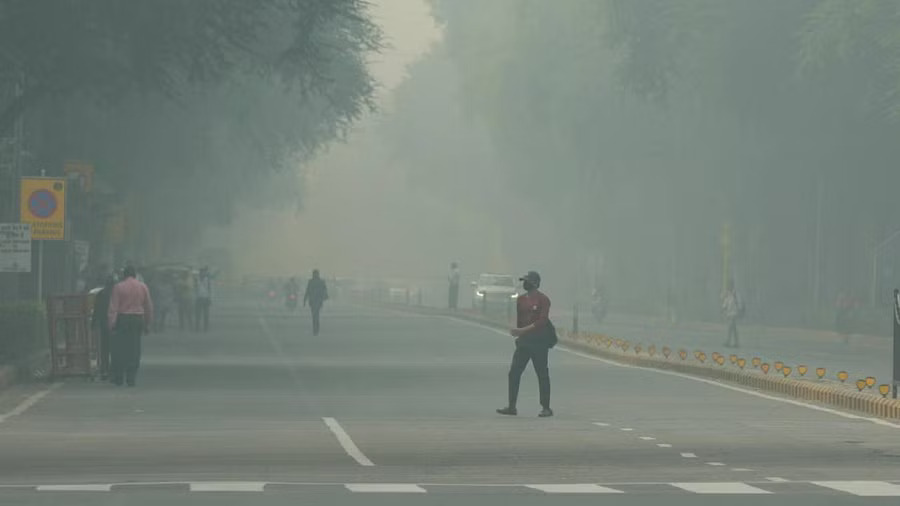As winter tightens its grip on the national capital, Delhi finds itself grappling with deteriorating air quality, marked by a ‘very poor’ Air Quality Index (AQI). Simultaneously, the city experiences a relatively mild minimum temperature of 14.6 degrees Celsius, creating a dichotomy that underscores the complex challenges posed by pollution and weather conditions.
The Air Quality Index, a crucial metric for gauging air pollution levels, has been consistently registering in the ‘very poor’ category, reflecting heightened concerns for the respiratory health of Delhi’s residents. The combination of vehicular emissions, industrial activities, and the seasonal phenomenon of crop burning contributes to the city’s annual struggle with air pollution during the winter months.
Delhi’s air quality during this period becomes a focal point for public health discussions, prompting authorities to implement measures aimed at mitigating pollution levels. The challenge lies not only in addressing immediate concerns but also in devising sustainable, long-term solutions that address the root causes of air pollution in the region.
Simultaneously, the minimum temperature of 14.6 degrees Celsius, while relatively mild, raises questions about the correlation between weather conditions and pollution. Typically, colder temperatures exacerbate air pollution as pollutants, including fine particulate matter, tend to linger close to the ground. This phenomenon, coupled with stagnant air, contributes to the persistence of poor air quality in the winter months.
The coexistence of ‘very poor’ air quality and mild temperatures underscores the multi-faceted nature of Delhi’s environmental challenges. While immediate interventions, such as restrictions on certain activities and enhanced monitoring, are crucial, a holistic approach is necessary to address the systemic issues contributing to the city’s pollution woes.
Government initiatives, public awareness campaigns, and collaborative efforts with neighboring states to curb crop burning are essential components of a comprehensive strategy. Additionally, investments in sustainable transportation, the promotion of green technologies, and the enforcement of stringent industrial regulations are pivotal in creating a lasting impact on Delhi’s air quality.
In conclusion, Delhi’s ‘very poor’ air quality, coupled with mild temperatures, serves as a stark reminder of the urgent need for concerted efforts to combat air pollution. As the city navigates this annual challenge, the focus must extend beyond temporary measures to address the systemic issues that perpetuate poor air quality. Sustainable solutions, coupled with community participation, are imperative for ensuring a healthier and cleaner environment for Delhi’s residents.
Sponsored
FACTS Transcripts
Apply for a University document anywhere
https://www.factstranscript.com
Quick Transcripts for popular Universities, check your University name now and get started. We help you to get your transcript application online which is accepted for use of IRCC.
No DD, NO Paperwork. 100% Authentic, Reliable.
FACTS Transcripts Charges · Reviews · Assam Universities · Home · Know your University










